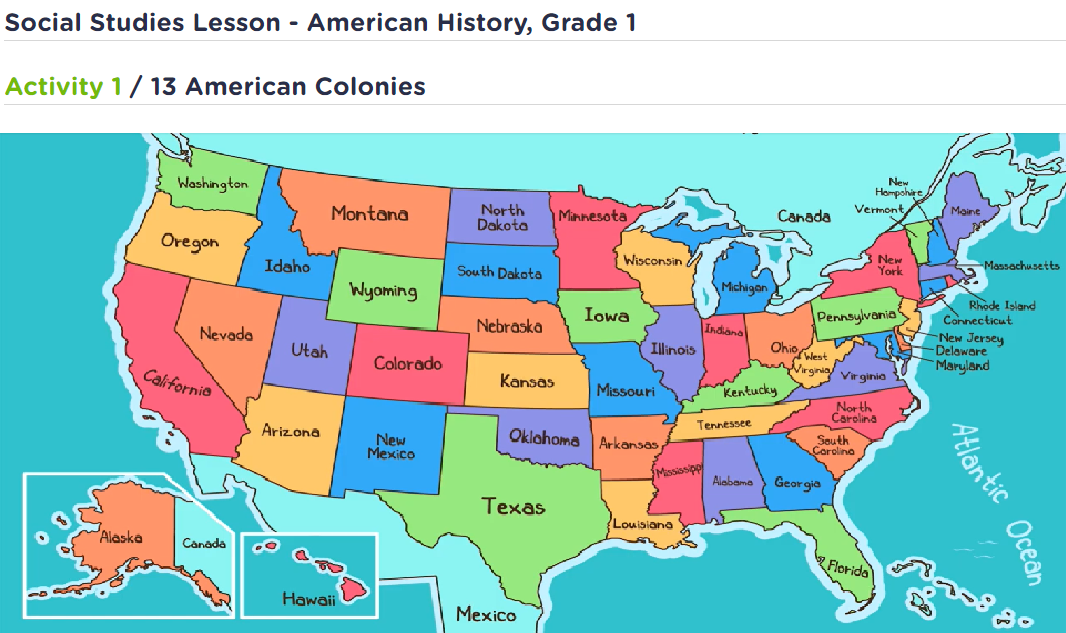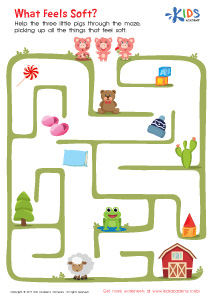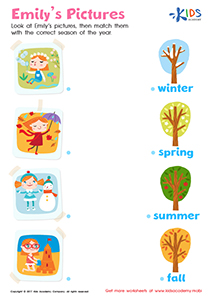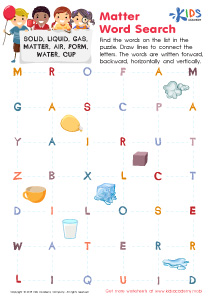Extra Challenge Life Science Worksheets for Ages 6-8
5 filtered results
-
From - To
Boost your child's understanding of life science with our specially designed Extra Challenge Life Science Worksheets for Ages 6-8. Our interactive worksheets feature engaging exercises that cover essential topics, from plant life cycles and animal habitats to ecosystems and human biology. Tailored to provide an intellectual stretch for young learners, these worksheets promote critical thinking and comprehension through a variety of activities. Ensure your child not only meets but exceeds learning milestones with our high-quality, engaging, and challenging life science resources. Perfect for both classroom use and homeschooling, our worksheets make learning science fun and effective!
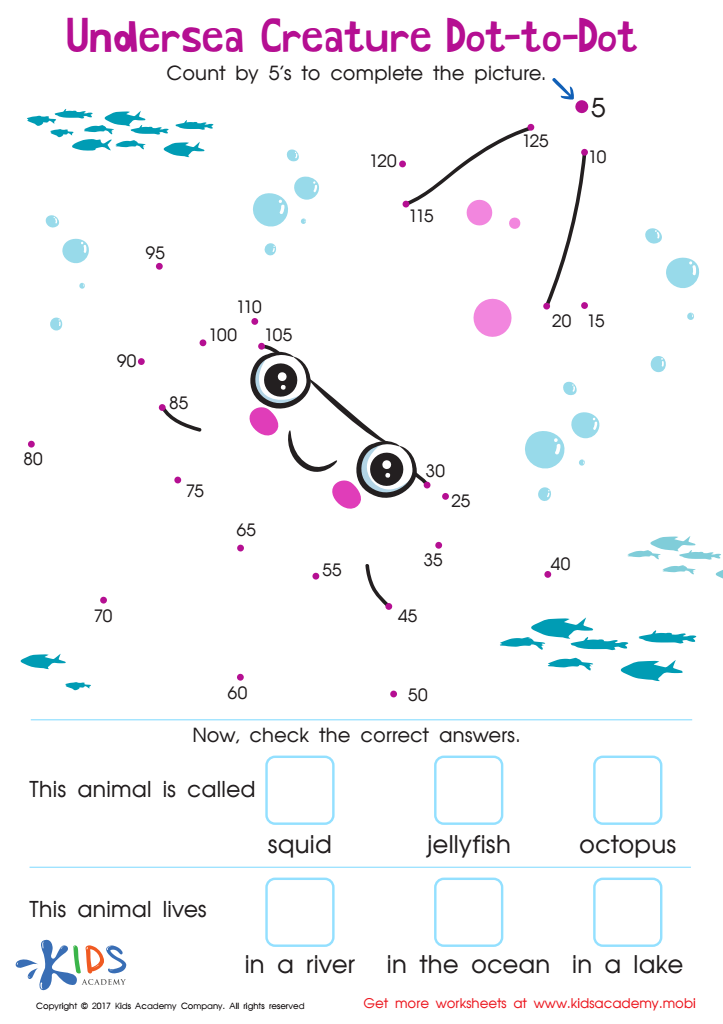

Undersea: Dot To Dot Worksheet
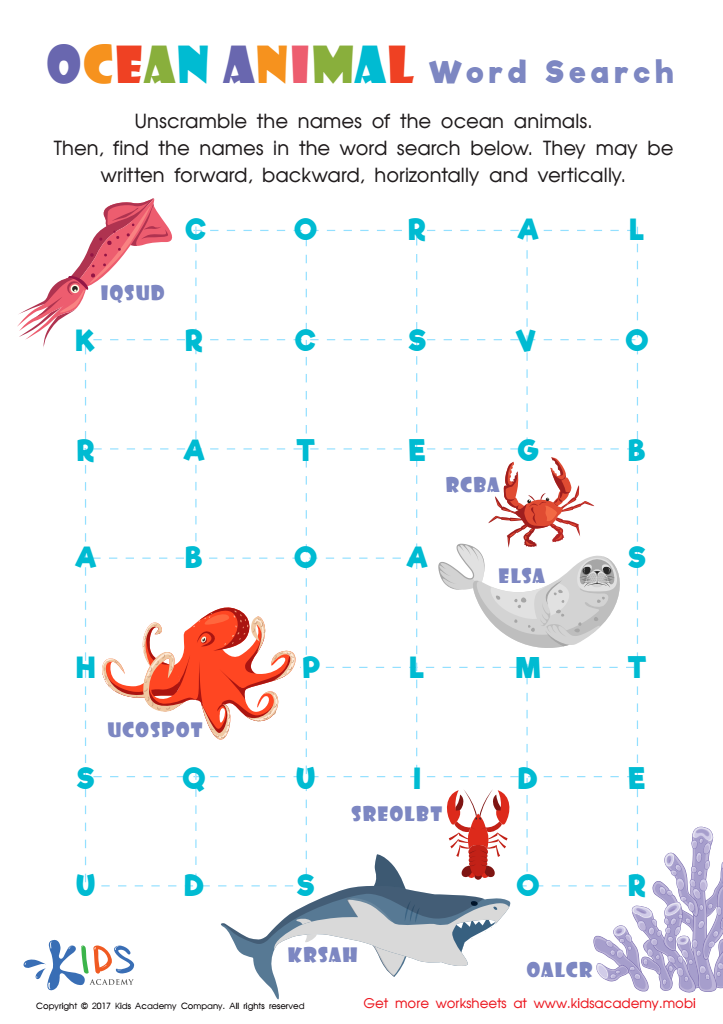

Ocean Animals Word Search Printable
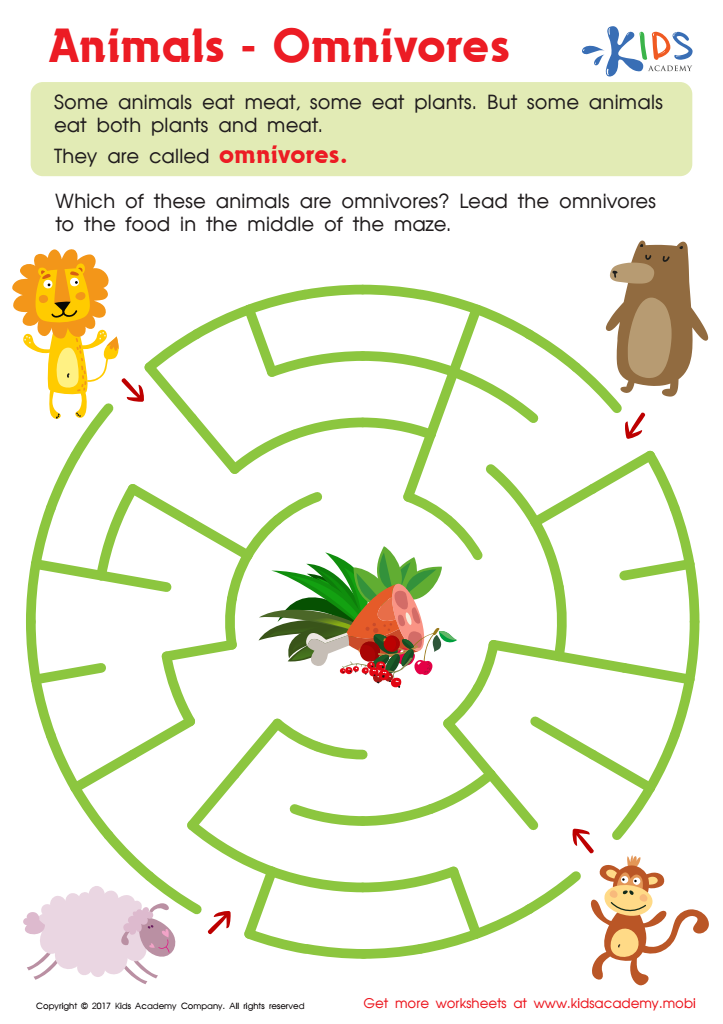

Omnivores Animals Worksheet
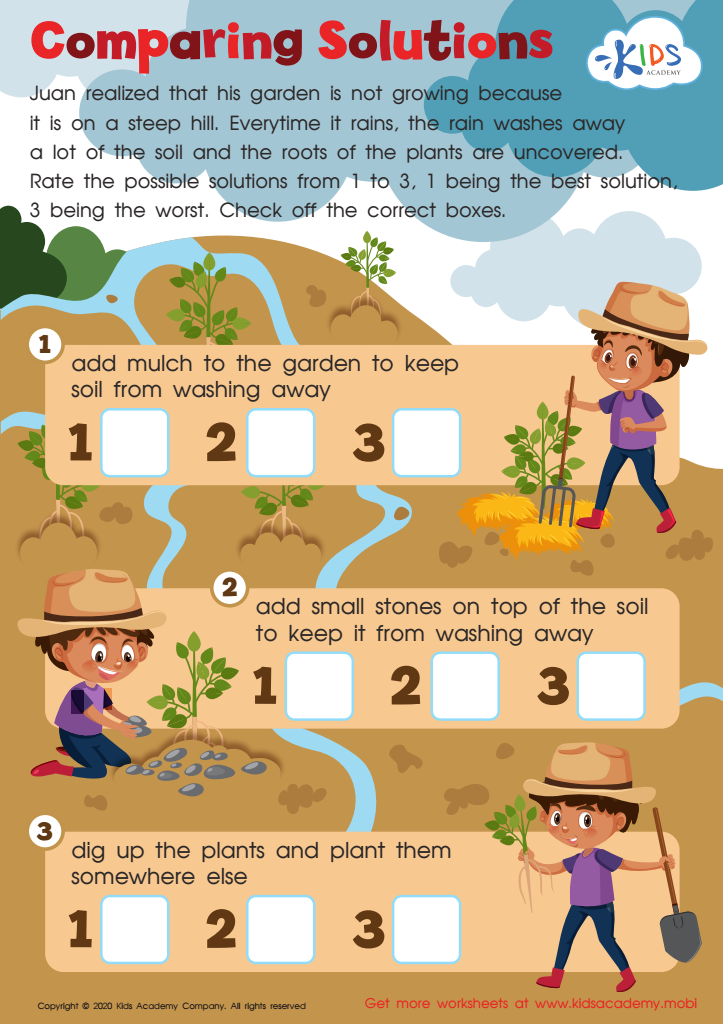

Comparing Solutions Worksheet
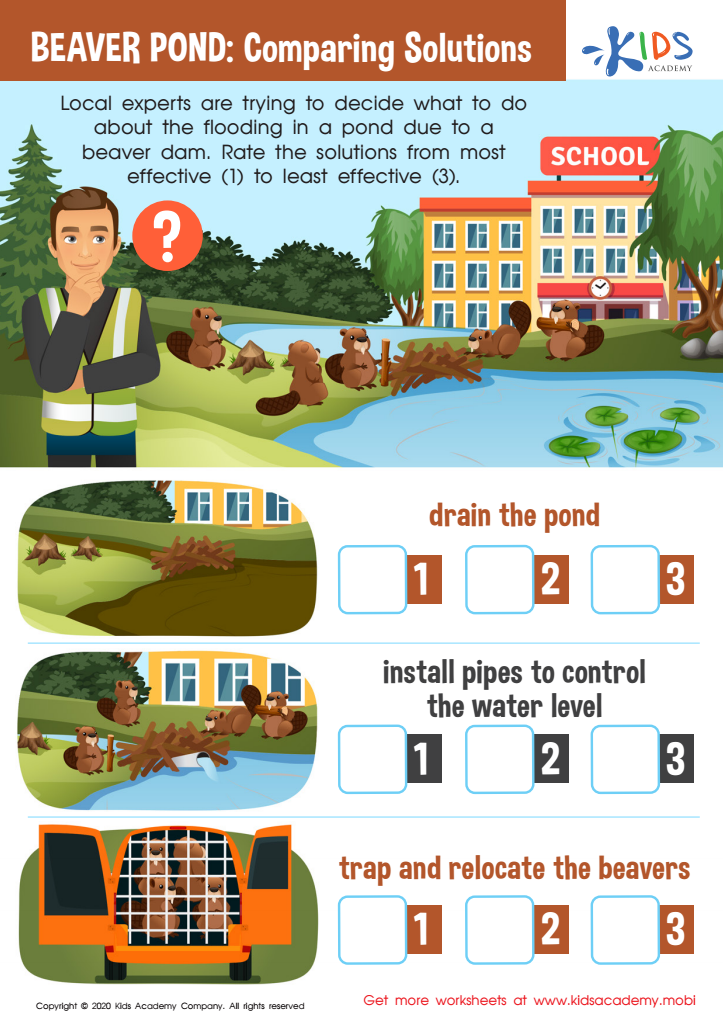

Beaver Pond: Comparing Solutions Worksheet
Extra Challenge Life Science activities for ages 6-8 are vital as they foster a deeper appreciation for the natural world at a formative stage in children's education. These activities go beyond basic lessons, offering dynamic and hands-on learning opportunities that engage young minds. For parents and teachers, investing in such enriched educational experiences supports several key areas of early development.
First, these challenges stimulate curiosity and investigative skills, teaching children how to ask questions, form hypotheses, and conduct simple experiments. These foundational skills are essential, not just in science, but across all subjects and in everyday problem-solving. Moreover, tackling these challenges helps improve critical thinking and observational skills, abilities that are central to children's intellectual growth.
In addition to cognitive benefits, participating in hands-on science explorations fosters enthusiasm for learning. Engaged children are more likely to develop a lifelong interest in scientific inquiry. This early exposure can pave the way for future academic success in science, technology, engineering, and mathematics (STEM) fields.
Furthermore, Extra Challenge Life Science activities often promote collaborative learning. When children work together to solve problems, they build social skills such as communication, teamwork, and empathy. Therefore, parents and teachers who encourage and facilitate these activities are helping to create well-rounded individuals who are both intellectually and emotionally prepared for future challenges.

 Assign to the classroom
Assign to the classroom

